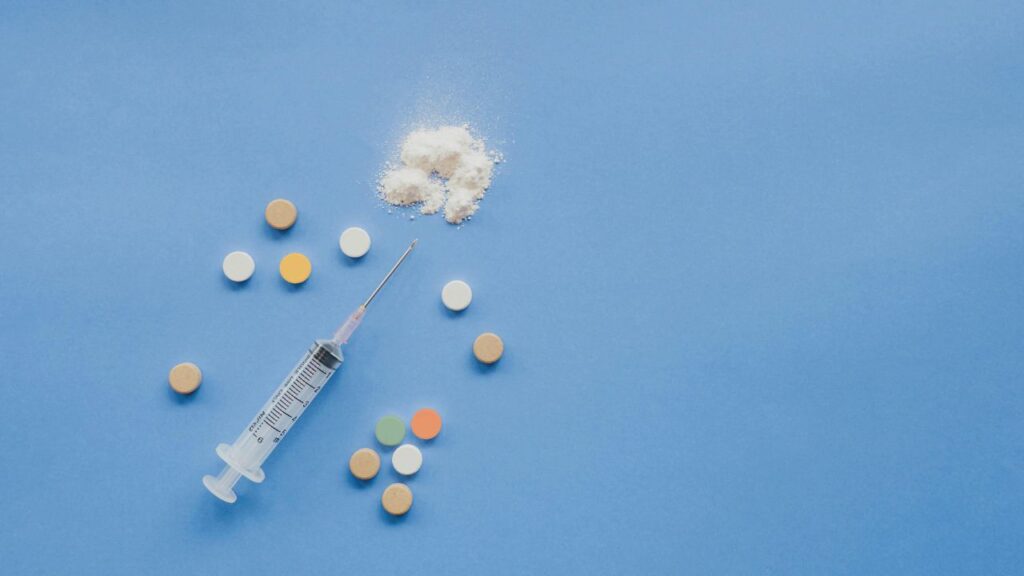Heroin addiction creates a devastating cycle that traps individuals in a pattern of compulsive use, withdrawal avoidance, and increasing tolerance. Breaking free from this cycle requires more than willpower, it demands comprehensive professional treatment that addresses the complex physical, psychological, and social aspects of heroin addiction.
Understanding why heroin rehab is essential for recovery can help individuals and families make informed decisions about treatment and take the crucial first step toward healing.
The Unique Challenges of Heroin Addiction
Heroin creates one of the most physically dependent forms of addiction, with withdrawal symptoms that can be severe enough to drive continued use even when someone desperately wants to quit. The drug’s rapid onset and short duration of action create a pattern of frequent use that quickly escalates tolerance and dependence.
Unlike many other substances, heroin withdrawal involves intense physical discomfort including nausea, vomiting, muscle cramps, diarrhea, and severe anxiety that can last for days or weeks. These symptoms are often so unbearable that people return to using heroin simply to make them stop, perpetuating the addiction cycle.
The illegal nature of heroin also creates additional risks and complications that require professional intervention. Street heroin is often mixed with dangerous substances like fentanyl, increasing the risk of overdose, and the lifestyle associated with heroin use often involves criminal activity, unsafe living conditions, and exposure to violence.
Medical Detox: The Critical First Step
Professional heroin rehab begins with medically supervised detox that ensures safety and comfort during withdrawal. Medical professionals can provide medications that significantly reduce withdrawal symptoms, making the detox process more manageable and reducing the likelihood of early relapse.
Medications like methadone, buprenorphine, or naltrexone may be used as part of medication-assisted treatment to reduce cravings and withdrawal symptoms while supporting long-term recovery. These FDA-approved treatments have been proven effective for opioid addiction and require medical supervision to use safely.
Attempting heroin detox without medical supervision is not only extremely uncomfortable but can also be dangerous for people with underlying health conditions. Professional detox programs monitor vital signs, provide nutritional support, and can intervene quickly if medical complications arise.

Addressing the Psychological Roots of Addiction
Heroin rehab addresses not just the physical dependence but also the psychological factors that contribute to addiction. Many people begin using heroin to escape emotional pain, trauma, depression, or anxiety, and these underlying issues must be treated for recovery to be successful.
Cognitive-behavioral therapy helps identify triggers and thought patterns that lead to drug use while developing healthy coping strategies for managing stress, cravings, and difficult emotions. This therapy teaches practical skills for handling high-risk situations without turning to heroin.
Trauma-informed care is often essential for heroin addiction treatment, as many individuals have experienced abuse, violence, or other traumatic events that contribute to their substance use. Processing these experiences in a safe, therapeutic environment reduces their power to trigger relapse.
Building a New Identity and Lifestyle
Heroin addiction often becomes so central to a person’s daily routine that recovery requires learning an entirely new way of living. Professional heroin rehab provides structure and support while individuals develop new habits, interests, and relationships that don’t revolve around drug use.
Group therapy creates connections with others in recovery who understand the unique challenges of overcoming heroin addiction. These peer relationships provide encouragement, accountability, and practical advice from people who have successfully navigated similar struggles.
Life skills training helps individuals rebuild practical abilities that may have deteriorated during active addiction, such as managing finances, maintaining employment, caring for personal hygiene, and managing household responsibilities.
Addressing Co-Occurring Mental Health Conditions During Heroin Rehab
Many people with heroin addiction also struggle with mental health conditions like depression, anxiety, PTSD, or bipolar disorder. These co-occurring disorders require integrated treatment that addresses both conditions simultaneously to prevent relapse.
Mental health symptoms often worsen during early recovery as the brain adjusts to functioning without heroin, making professional psychiatric care essential during this vulnerable period. Medications for mental health conditions may need adjustment or initiation under professional supervision.
Dual diagnosis treatment ensures that both addiction and mental health receive appropriate attention, rather than treating them as separate problems. This integrated approach significantly improves long-term recovery outcomes.
Repairing Damaged Relationships
Heroin addiction typically damages relationships with family, friends, and community, creating isolation that can perpetuate continued use. Family therapy helps repair these relationships while establishing healthy boundaries and communication patterns that support recovery.
Many family members need education about addiction and recovery to understand how to provide appropriate support without enabling continued use. They may also need counseling to address their own trauma and stress related to their loved one’s addiction.
Rebuilding trust takes time and consistent sobriety, but professional treatment provides the framework and guidance for this healing process to begin safely and effectively.
Comprehensive Relapse Prevention
Heroin rehab develops comprehensive relapse prevention strategies that address the multiple factors that can trigger return to use. This includes identifying personal triggers, developing coping strategies for high-risk situations, and creating detailed action plans for managing cravings.
Relapse prevention also involves building a strong support network of sober peers, family members, therapists, and other professionals who can provide ongoing encouragement and accountability after formal treatment ends.
Understanding that relapse is often part of the recovery process, rather than a failure, helps reduce shame and encourages individuals to seek help quickly if they experience setbacks.
Long-Term Recovery Support After Heroin Rehab
Professional heroin rehab connects individuals with ongoing support services that continue long after initial treatment. This may include outpatient counseling, support groups, medication management, and other services that support sustained recovery.
Many programs offer alumni services that maintain connections between graduates and provide ongoing resources, social activities, and support networks specifically for people in recovery from heroin addiction.
The transition from intensive treatment to independent living can be challenging, and professional programs provide step-down services that gradually reduce support intensity while maintaining crucial connections and resources.
Heroin Rehab at The Bluffs
At The Bluffs, we understand the devastating impact heroin addiction has on individuals and families, but we also know that recovery is possible with the right treatment and support. Our comprehensive heroin rehab program addresses all aspects of addiction through evidence-based medical care, therapeutic interventions, and compassionate support.
Our experienced team has helped many people overcome heroin addiction and rebuild their lives. We provide individualized treatment plans that address each person’s unique circumstances, needs, and recovery goals in a supportive environment that promotes healing and growth.
We recognize that seeking treatment for heroin addiction requires tremendous courage, and we’re honored to support individuals and families through this challenging but hopeful journey toward recovery.
Recovery from heroin addiction is possible, but it rarely happens without professional help. The complexity of heroin dependence requires medical expertise, therapeutic intervention, and comprehensive support that only professional treatment can provide.








